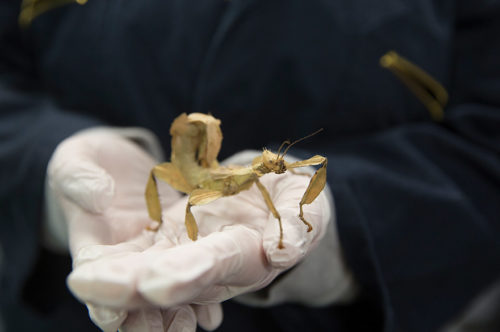This course will help you to build on practical experiences, gaining insight into the importance of the sport fishery and aquaculture sectors for food production and sustainability.
While being hands-on, the course also covers the science and management of sports fishery and aquaculture. You will develop analytical skills through modules on water quality, fish health and biology, and habitat and conservation management. You’ll also benefit from our facilities, which will support your learning and include a college-owned fish farm and lakes complex.
The course is offered by one of the university’s partner colleges: Hadlow College in Kent.
What you will study
Year 1
Students are required to study the following compulsory modules.
- Water Quality (15 credits)
- Fishery Management Practice 1 (15 credits)
- Principles of Fish Health and Biology (15 credits)
- Industry Practices 1 (15 credits)
- Introduction to Fish Farming and Aquaculture (15 credits)
- Practical Hatchery and Fish Husbandry Skills (15 credits)
- Professional Practice (15 credits)
- Research Skills (15 credits)
Year 2
Students are required to study the following compulsory modules.
- Fishery Management Practices 2 (30 credits)
- Nutritional Analysis (15 credits)
- Industry Practices 2 (15 credits)
- Salmonid Aquaculture (15 credits)
- Business Planning and Project Management (15 credits)
- Ecology and Habitat Management (15 credits)
- Data Analysis (15 credits)
Year 3
Students are required to study the following compulsory modules.
- Current Issues (15 credits)
- Honours Project (30 credits)
- Advanced Warm Water Aquaculture (15 credits)
- Intensive Recirculating Aquaculture Systems (15 credits)
- Industry Practices 3 (15 credits)
- Fish processing and marketing (15 credits)
- Environmental Surveying (15 credits)
How you will learn
This section helps you understand more about how you’ll learn based on standard delivery of teaching and learning on campus.
We are looking forward to welcoming students to our campuses for 2021/22. In line with government guidance, we are committed to delivering as much of our teaching, learning and student activity as possible on campus for the 2021/22 academic year. Depending on the national situation, and government advice, the situation may change but we are confident we are ready to manage any changes quickly and safely. Find out more about how we are keeping our campuses safe.
Teaching
In a typical week learning takes place through a combination of:
- Timetabled learning
- Independent study
You can view more information about how each module is taught within our ‚What you will study’ section.
Seminars and workshops enable you to discuss and develop your understanding of topics covered in lectures in smaller groups. You will also be able to meet your personal tutor. Timetabled learning may fall between 9am and 9pm depending on your courses and tutorials.
Class sizes
Information coming soon.
Independent learning
At university, you must develop the ability to work more independently than you have done before. In the early stages of the degree, you will receive a higher level of support from module leaders and personal tutors.
Overall workload
Rather than being spread over a whole week, we try and condense our teaching into 2-3 days. This gives you time for other things.
Assessment
Students are assessed through a combination of assessment methods depending on the modules chosen.
You can view how each module is assessed within our ‚What you will study’ section.
Each course has formal assessments which count towards your grade. Some courses may also include ‚practice’ assignments, which help you monitor progress and do not count towards your final grade.
Feedback summary
Assessment feedback on the programme will be delivered through a range of mechanisms depending upon the assessment method. Assessment feedback will be given in a timely manner that adheres to Hadlow College’s Assessment Policy, with a four week limit on assessment feedback being given to the students on formal summative assessment.
Careers and placements
Will I have a work placement?
Work experience is built into all courses (including weekends and holidays) to ensure students develop the necessary employability skills that the industry requires.
What sort of careers do graduates pursue?
Successful students can progress onto a related MSc or PhD programme. Alternatively the programme provides students with the necessary skills for management within the fisheries and aquaculture sectors. Typical employers include local authorities and public sector organisations such as The Environment Agency, as well as commercial fisheries, water companies, wholesalers and angling clubs. Past students are currently working for AJS Fisheries, the Environment Agency, Ocean Matters, Aqua Biotech, University College London, Trafalgar Trout Farm, Loch Duart Salmon farm and Mid Kent Fisheries.
Do you provide employability services?
Hadlow College has a dedicated team that will work with you to develop your CV, provide you with interview experience and offer advice on your future career direction. As a University of Greenwich student, you can also benefit from the employability services at the University, including the online resources and one-to-one assistance with placement and employment opportunities, knowledge of job markets, HR selection processes and job applications.
Zobacz więcej na stronie uniwersytetu >>
Wiza studencka do Wielkiej Brytanii
Aby studiować w Wielkiej Brytanii potrzebujesz wizy studenckiej. Aby złożyć wniosek o taką wizę studencką musisz zdjać certyfikat językowy na poziomie B2.
Uważaj! Do celów wizowych musisz wybrać wyłącznie egzamin w wesji Secure English Language Test (SELT) UKVI .
Co to jest test SELT UK VI registration? Przeczytaj więcej o testach SELT UKVI >>




















